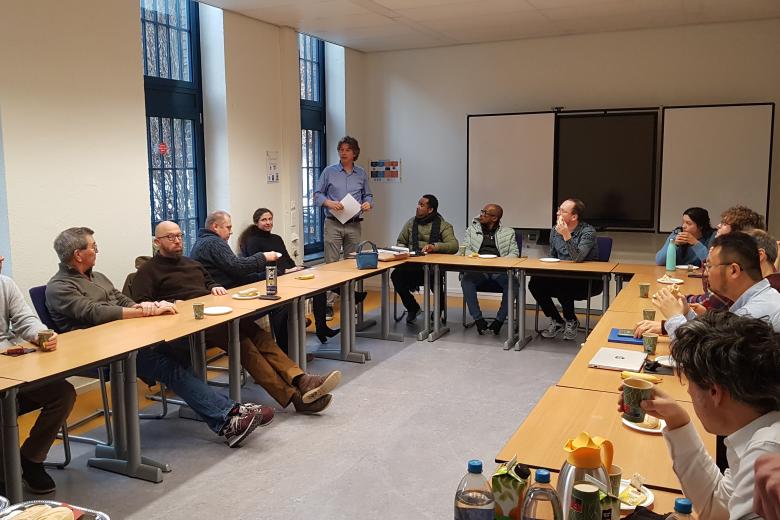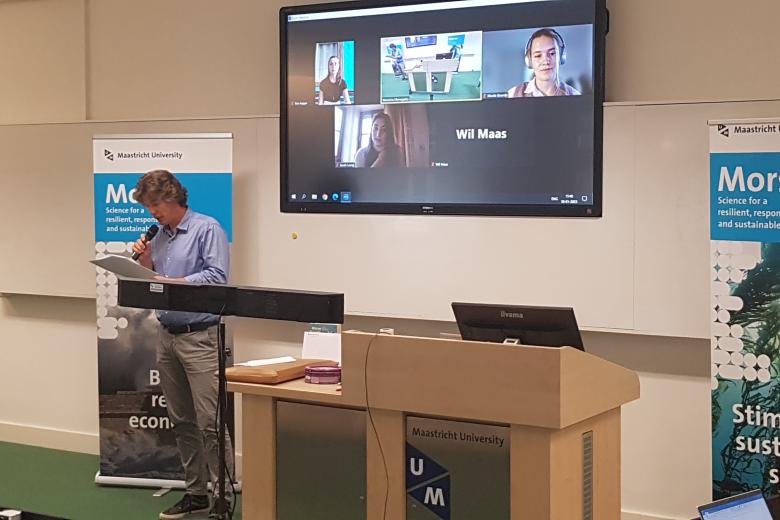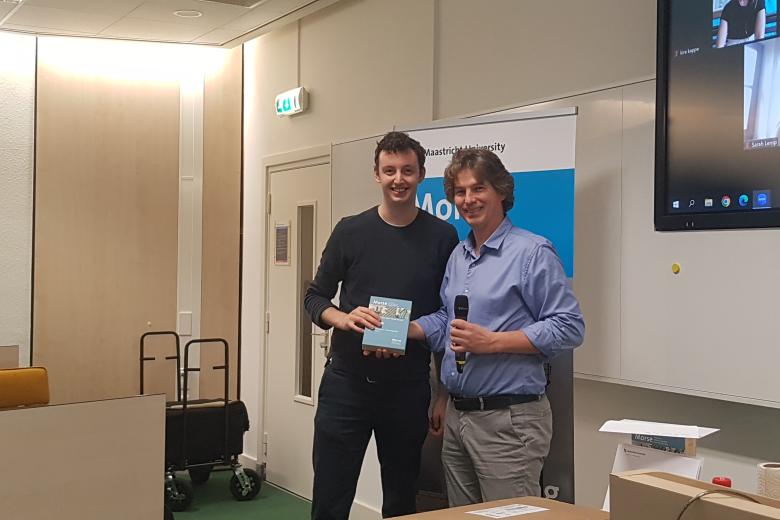MORSE Research Impact Day
On Monday 30 of January, MORSE hosted the MORSE Research Impact Day, in its premises of SBE. During the event, MORSE presented its plans for 2023, welcomed René Kemp and Erwin de Bruin to present about Problem Based Research, hosted its 2023 Thesis Award Ceremony, and finished with a New Year reception and networking.
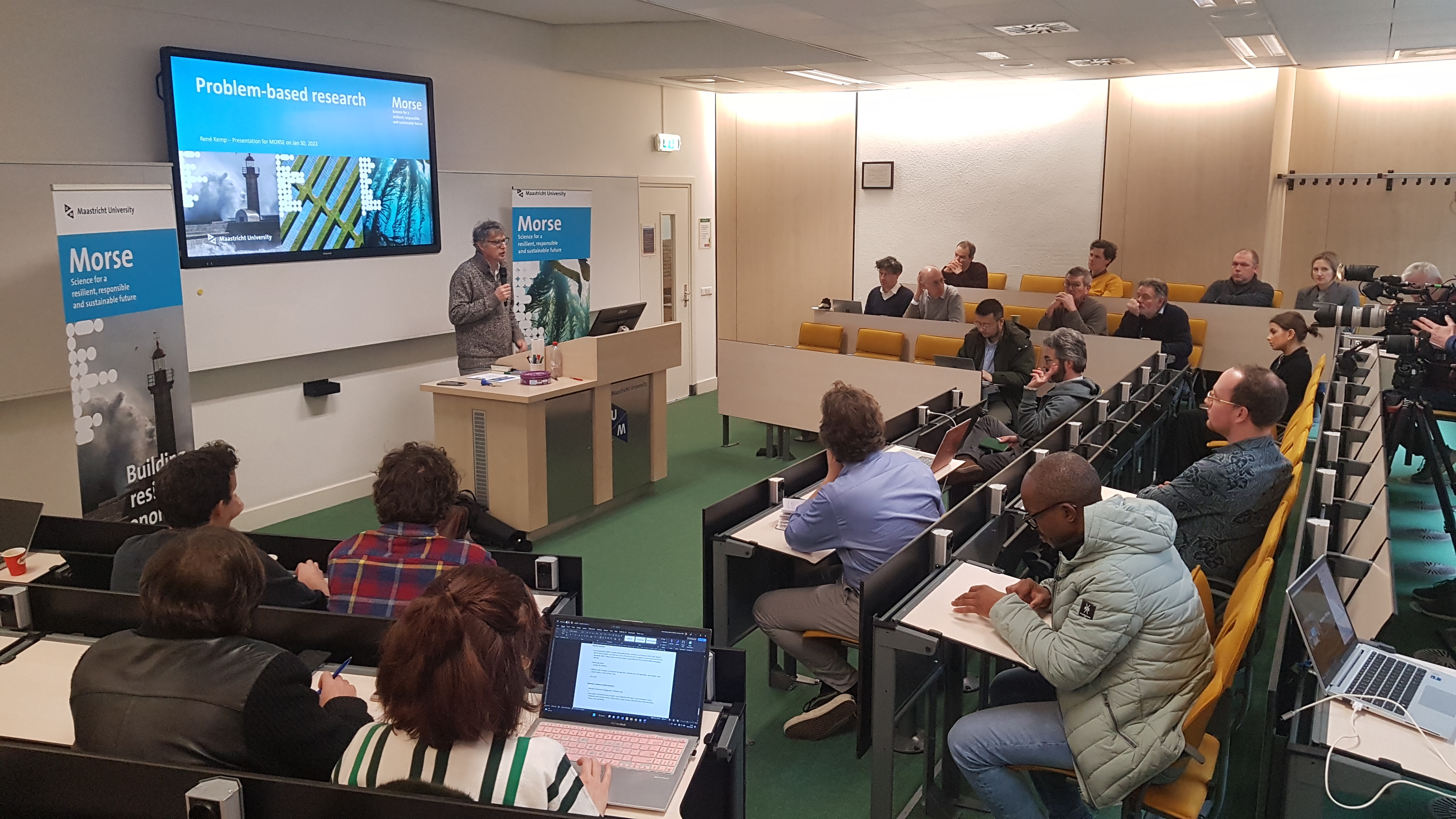
The event kicked off with a welcome lunch, which offered the opportunity for participants to network, interact, and was followed by a Problem Based Research session with two inspiring speakers to present both the theoretical and the practical points of view. The first presentation concerned the Problem-based research approach and its application to societal problems. Prof. René Kemp introduced the complexity of societal problems and how science helps to tackle them. He then defined Problem-based research, describing it as salient, credible, and legitimate, before moving on to its sub-category of transdisciplinary research. Transdisciplinary research focuses on research in collaboration with stakeholders. Prof. Kemp concluded with the benefits of Problem-based research to inspire fellow guests and researchers to consider Problem-based research. Participants discussed the pros and cons of acting as expert witnesses in law suits and speaking out in public on normative issues. The critical role of education was also discussed.
The second presentation, delivered by Erwin de Bruin, was meant to provide an example from the practice, in the field of Problem-based research. Mr de Bruin represented the Gemeente Maastricht and talked about their energy transition programma 2023-2026 that aims to achieve a climate-neutral municipal organisation by 2030 and a climate-neutral Maastricht by 2050. In order to realise its plan, the Maastricht Municipality adopted a target group approach by opening a Klimaathuis in October 2022 and expanding this project to new target groups, such as small businesses. A neighbourhood approach is part of this which includes technical choices, such as collective versus individual solutions, and process choices, such as new laws that are about to be implemented. After this the speaker discussed the role of science in the energy transition. He particularly valued a helicopter view that helps to keep an overview of transitions, which relates to Prof. Kemp’s talk about how Problem-Based Research contributes to tackling societal issues.
Thesis Award Ceremony
After the Problem-Based Research session and a short coffee break, the event moved on with the Thesis Award Ceremony. The award was meant for those theses that will have impact on the society. Overall, MORSE received twelve nominations of impressive theses ranging from legal rights of nature over green ports to seed sovereignty. The jury compiled a shortlist based on the theses’ fits to the MORSE themes and their potential impact.
The winner of the MORSE Best BSc.-Thesis Award was Kira Kappe whose bachelor thesis tackles the Right of Nature in the European Union: Implementation and suitability of the concept at EU level. The first runner-up was Martina Bighignoli who wrote about Economic Growth and Environmental Degradation: a dilemma of the 21st century: A study on the Environment Kuznets Curve.
The winner of the MORSE Best MSc.-Thesis Award was Nick Adzic whose thesis tackled Climate Change as Sovereign Risk determinant. The two runner-ups were Nicola Grande who wrote about The Role of Chilean State in Securing Energy Justice: The Discursive Struggle for Legitimacy in the Governance of Complex Energy Innovation Processes, and Sarah Lemp who wrote a Systematic Review: Leadership Behaviours for Team Effectiveness mediated by Psychological Safety: A comparison between Co-located and Virtual Teams.
After the Thesis Award Ceremony, we closed the event with the MORSE New Year Reception, with drinks and bites, and a chance to network with the other participants to welcome the third MORSE year!
During the MORSE New Year Reception we also took the chance to interview some MORSE fellows, stay tuned to know when the video will be available.
Also read
-
Green light for UM participation in unique YUFE bachelor programme
The UM can start as a degree awarding partner in the new unique bachelor programme Urban Sustainability Studies offered by YUFE (Young Universities for the Future of Europe), an alliance of ten European universities. This week, the UM received a positive outcome of the macro due diligence assessment...
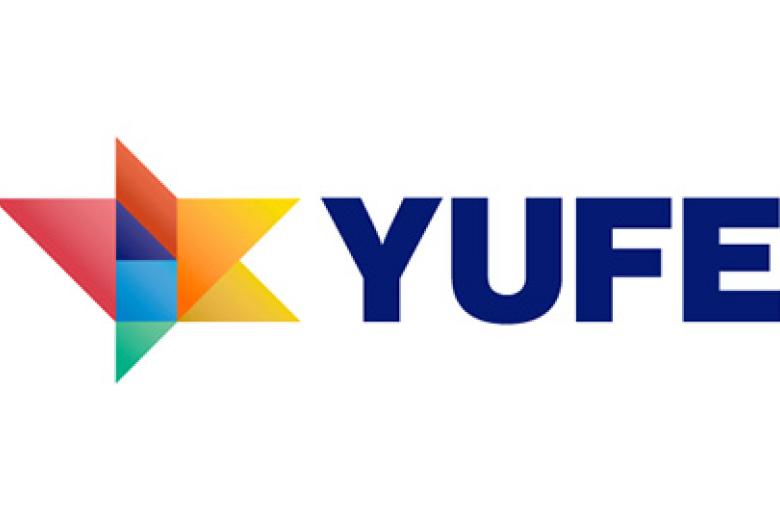
-
Professor Anouk Bollen-Vandenboorn appointed Knight in the Order of the Crown
Prof. Dr Anouk Bollen-Vandenboorn, Director of the Institute for Transnational and Euregional cross border cooperation and Mobility (ITEM) at the Faculty of Law, Maastricht University, was appointed Knight in the Order of the Crown on 3 July, during a formal ceremony at the Belgian Embassy in The...
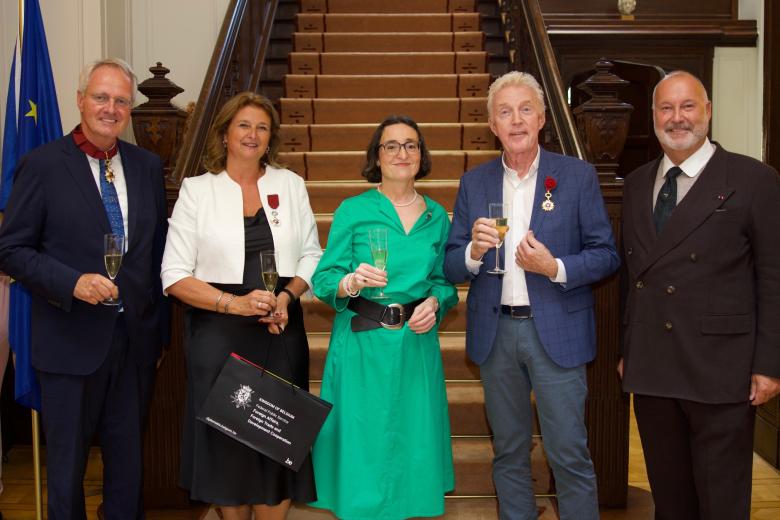
-
Study Smart gets Dutch Education Premium
Maastricht University's (UM) interfaculty educational innovation project Study Smart is one of the three winners of the Dutch Education Premium 2025. This was announced on Tuesday during the Comenius festival in The Hague.

